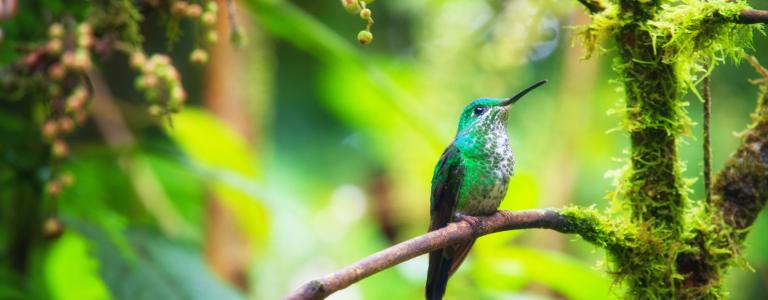Climate Adaptation and Protected Areas (CAPA) Initiative
The Climate Adaptation and Protected Areas (CAPA) Initiative is a 3-year project that aims to use nature-based solutions (NbS) to strengthen climate resilience and protect biodiversity in and around protected areas in the Kavango-Zambezi and Greater Virunga landscapes in sub-Saharan Africa, Belize, and Fiji.
Our Approach
The CAPA Initiative is working with local communities, traditionally underrepresented groups, women, and national and local authorities to design and implement tangible gender-responsive, conflict-sensitive NbS for adaptation in and around protected areas and critical landscapes.
The initiative is being implemented by the International Institute for Sustainable Development in collaboration with the Wildlife Conservation Society and the World Wide Fund for Nature, with funding support from Global Affairs Canada.
The CAPA Initiative seeks to
- tap into the potential of NbS to support local communities in adapting to climate change while safeguarding critical ecosystems and biodiversity in and around protected areas,
- better integrate climate adaptation considerations into the management of protected areas, and
- Increase the agency of women and underrepresented groups to participate in the design and implementation of NbS for adaptation and in climate-resilient management plans for protected areas.
Nature-Based Solutions for Adaptation
Climate change impacts greatly affect ecosystems and the communities who depend on them. Nature-based solutions for adaptation (NbS) can play a vital role in helping people and biodiversity build resilience to climate risks. Learn more about what effective NbS for adaptation are and their practical application across different ecosystems to strengthen their resilience.
This infographic explains moreProject Sites

Belize
In Belize, the Climate Adaptation and Protected Areas (CAPA) Initiative will address water security concerns; protect biodiversity; improve hydrological functions; stabilize and enhance degraded soil; and support ecosystem services for local communities.

Fiji
In Fiji, the Climate Adaptation and Protected Areas (CAPA) Initiative will promote sustainable fisheries; support reforestation; safeguard locally managed marine areas; train local communities; preserve functional and healthy ecosystems; and improve flood mitigation.

The Greater Virunga Landscape
In the Greater Virunga Landscape (GVL), the Climate Adaptation and Protected Areas (CAPA) Initiative will focus on nature-positive livelihood interventions and the restoration of degraded lands in and around protected areas. Working with local civil society and community members, CAPA Initiative activities will be carried out in southwest Uganda.

The Kavango-Zambezi Landscape
In the Kavango-Zambezi (KAZA) Transfrontier Conservation Area landscape, the Climate Adaptation and Protected Areas (CAPA) Initiative will promote the restoration of forest cover; restocking wildlife; supporting nature-positive livelihoods; and stabilizing headwater, riverine, and lagoon wetlands to enhance ecosystem integrity and biodiversity.
More on CAPA

How to Make Nature-Based Solutions for Adaptation Work for Everyone
Effective nature-based solutions (NbS) for adaptation start with integrated climate risk assessments. These take-aways will help practitioners plan for inclusive and sustainable NbS.

Inclusive Nature-Based Solutions for Climate Adaptation
Discover how climate change and biodiversity loss impact people differently and how inclusive nature-based solutions for adaptation can help.

Hope Springs: How one community brought a river back from the brink
For over a decade, a small group of community members in Zambia
Contact us
If you’d like to reach out to us, please contact us at capa@iisd.org.
Follow us on Twitter





